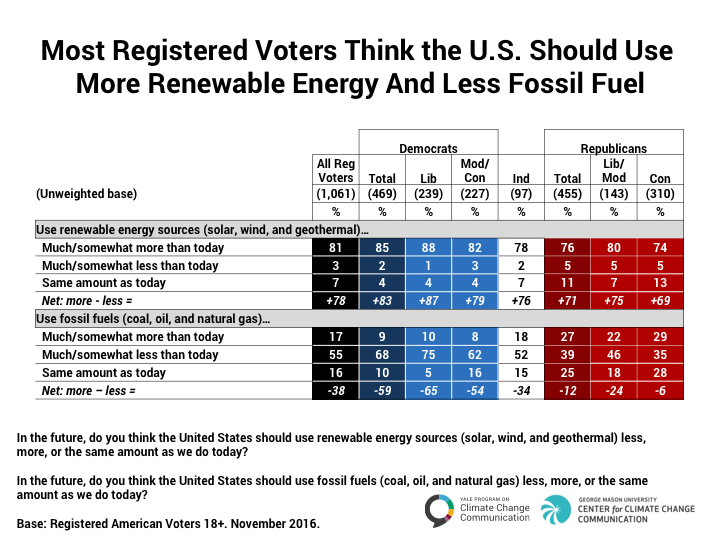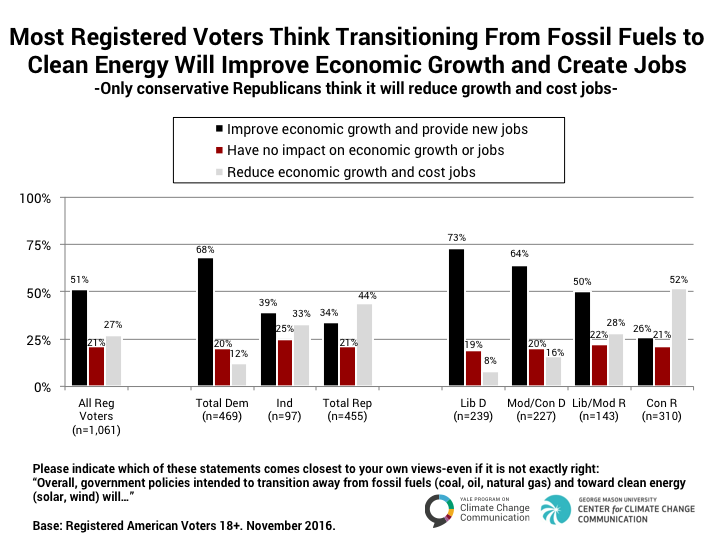Report · Dec 13, 2016
Politics & Global Warming, November 2016
By Anthony Leiserowitz, Edward Maibach, Connie Roser-Renouf, Seth Rosenthal and Matthew Cutler
Filed under: Policy & Politics
4. Support for Transitioning From Fossil Fuels to Clean Energy
4.1. Most registered voters think the U.S. should use more renewable energy and less fossil fuel.
A large majority of registered voters (81%) say that, in the future, the U.S. should use more renewable energy sources (solar, wind, and geothermal), and 61% say the U.S. should begin to do so “immediately.” This is the case across the political spectrum – with three in four or more Democrats (85%), Independents (78%), and Republicans (76%) saying the U.S. should use more renewable energy.
A majority of registered voters (55%) also say that, in the future, the U.S. should use less fossil fuel (coal, oil, and natural gas), with 38% saying that this should begin “immediately.” Majorities of Democrats (68%), and Independents (52%) say the U.S. should use less fossil fuel. A plurality of Republicans (39%) also say the U.S. should use less fossil fuel.
4.2. Most registered voters think transitioning from fossil fuels to clean energy will improve economic growth and create jobs.
Half of registered voters (51%) think government policies intended to transition away from fossil fuels and toward clean energy will improve economic growth and provide new jobs. An additional one in five (21%) think it will have no impact on the economy or jobs. Only about one in four (27%) think it will reduce economic growth and cost jobs. Democrats (88%) are the most likely to think policies to transition from fossil fuels to clean energy will either improve economic growth and provide new jobs or have no impact. A majority of Independents (64%) and Republicans (55%) also think a clean energy transition will improve the economy or have no impact, although 52% of conservative Republicans believe it would reduce economic growth and cost jobs.

